Polymers Petrochemicals Bioplastics rPET 04-02-2019 - Arhive
Polymers Caprolactam Petrochemicals Prices
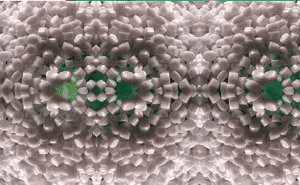
- Crude Oil Prices Trend

US February benzene contractssettled 10 cents/gal ($30/tonne) higher at$1.93/gal free on board (FOB) US Gulf, markingthe first increase in five months.
Benzene contractshit a 33-month low in January, trackingsteep losses in spot prices driven by longbenzene supplies and the sharp drop in crudeoil prices during the fourth quarter.
Benzene supply remains sufficient, althoughparticipants feel the market may be able towork through excess inventories in the comingweeks. The heavy refinery turnaround season inthe US should help pare down supply levels,although some downstream turnarounds may limitconsumption.
Spot benzene prices have regained some lostground in recent weeks after plummeting to anine-year low early inJanuary. The recovery in spot prices hasbeen driven by the recovery in the crude oilmarket.
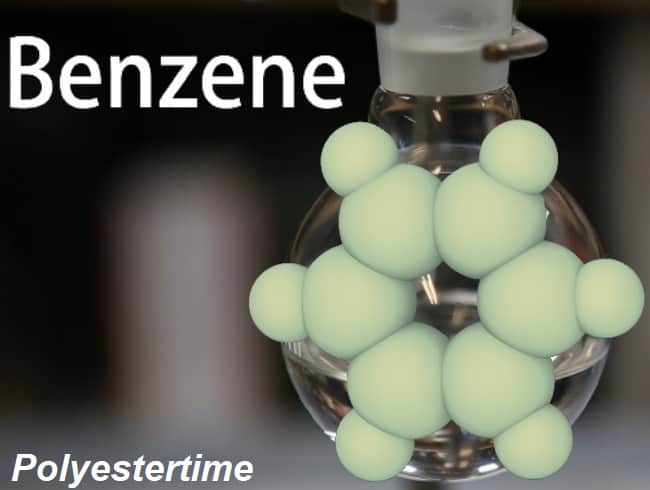
Global polyethylene (PE) markets are starting to show thefirst signs of what could potentially develop into a pricewar, as new US capacity comes onstream amid lacklustre globaldemand growth and the ongoing US-China trade war.
Evidence for this is particularly strong in linear lowdensity PE (LLDPE) where, since mid-2018, US prices detachedfrom Europe and Asia and fell as producers tried to gainmarket share for new shale-gas based volumes. US PE exportsto all destinations totalled 3.3m tonnes in 2018 – 50% higherthan in 2017 – and are expected to reach 3.8m tonnes in 2019and 4.3m tonnes in 2020, according to ICIS forecasts.
Meanwhile the US-China trade war has already made China – byfar the world’s largest PE import market – less attractive toUS exporters. China slapped a 25% tariff on all imports of USHPDE and 93% of LLDPE in August 2018. Export figures show asharp decrease in US exports of LLDPE and HDPE to China inSeptember and October 2018 (the latest figures available).Chinese exporters of finished plastic goods, meanwhile, facea 10% tariff which will rise to 25% in March unless the twocountries can agree a deal in talks which restarted onWednesday.
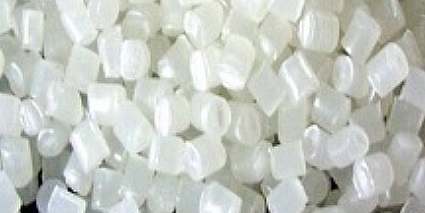
Japanese manufacturers mainly dealing with the food and beverage industry are increasing their support to the government’s efforts of developing plastic alternatives.
They are launching eco-friendly food and beverage packaging and exploring new ways to reduce dependence on plastic.
The use of paper packaging and recycled PET bottles is reportedly increasing at a decent rate in Japan. A number of firms have banked on their innovations to contribute to the cause.
In May 2019, Suntory Beverage & Food Limited will be awarded the WorldStar Award by the World Packaging Organization for its FtoP Direct Recycle Technology.

Toppan USA’s chief executive, Masa Tatewaki, expects this year to be focused on sustainability
Increasing consumer demand for sustainable packaging solutions is behind Toppan USA’s latest development drive, with the company planning to develop polyethylene-based barrier film this year.
Toppan USA’s main product line in recent times has been transparent high-barrier GL FILM, which is PET-based, but last year it ventured into mono-material packaging with an oriented polypropylene-based barrier film.
Admitting the challenges that the packaging market faces, Toppan USA’s chief executive, Masa Tatewaki, said: “It is almost certain that 2019 will be a year in which the industry will be expected to pursue sustainability and full-scale measures to conserve the environment, not simply better packaging design, functionality, convenience, and cost.”

The deployment of innovative chemical recycling technologies – which can reprocess waste plastics into high-value, sustainable feedstocks for the production of new plastics, chemicals and oils – holds the key to tackling the plastic waste problem. But Government policies need to catch up with these innovations.
Investing in chemical recycling solutions will enable the waste management sector to recycle a far higher proportion of the plastic that is currently deemed ‘unrecyclable’. The technologies can also produce materials with a high recycled content, enabling the packaging and manufacturing sectors to improve their resource efficiency and sustainable credentials.
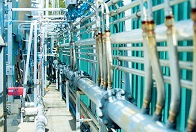
Oil prices rose almost 2 percent on Friday morning, closing higher for the week, with traders turning turned bullish once again as a result of lower OPEC+ supply and global outages
Oil prices gained roughly 18 percent in January, the largest gain for that month of the year on record. “A break through $55 in WTI and $65 in Brent would be a very bullish signal for these and could be the catalyst for more significant upside, with oil having stabilised over the last few weeks following the post-Christmas bounce,” Craig Erlam, senior market analyst at brokerage OANDA, wrote in a briefing. Prices lost ground on Thursday, but there are plenty of bullish landmines lurking in the market, ranging from Venezuela and Iran outages, OPEC+ cuts, and slowing U.S. shale growth.

Shandong Ruyi Investment Holding, a textile and apparel company in China, completed its acquisition of INVISTA’s Apparel & Advanced Textiles business.
Financial details were not disclosed.
INVISTA is a privately held company owned by the Koch family. LYRCA was a key part of the DuPont nylon business which was sold to Koch in 2004.
Wichita-based INVISTA continues to operate other nylon businesses that include Stainmaster Carpets.

Plastics recycling equipment from Starlinger.Although the recoSTAR line of plastics processing equipment was already available in six sizes, Starlinger added a seventh to meet yet another application last year.
The equipment manufacturer received a number of requests from the post-consumer film recycling sector, asking for a recoSTAR model that would fit their needs closer than existing options. The film recycling companies described an ideal throughput of about 2,200 pounds per hour, and the closest available sizes achieved either slightly less or more than that volume.
“The launch of the recoSTAR dynamic 145 bridges this gap,” Starlinger wrote in a release last month.
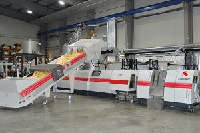
Scrutiny of the sustainability of the fashion industry is set to continue this year, with recommendations from the Environmental Audit Committee (EAC) from its inquiry into the issue due for publication in this month.
There was a flurry of activity ahead of Christmas on 18 December, when WRAP published the latest progress report from the Sustainable Action Clothing Programme (SCAP). It revealed that a target set to reduce clothing waste arising by the end of 2020 was going to be “extremely challenging” to meet.

Enjoying an ice cream is a good place to start. I don’t mean one in a cup with a little disposable plastic spoon, or one in a plasticised wrapper.
The ultimate waste-free treat, a good old-fashioned ice cream cone is 100 per cent edible.
Over the last 10 years I’ve come to appreciate the beauty of the ice cream cone in my mission to ditch the single-use plastic in my life. Along the way, I’ve discovered quitting plastic is easier than you think – and has some pretty satisfying and unexpected results.
This might seem unlikely. Yes, plastic is absolutely everywhere. Right now, most of us are wearing it, eating and drinking from it, sitting on it, walking on it and probably even ingesting it.

Plastics that have been labelled as biodegradable by industry have become more popular and affordable due to increased public awareness of environmental issues resulting from the many kinds of damage caused by single-use plastic bags, food containers, straws and other non-compostable items.
According to Pralong Damrong-thai, director-general of the Pollution Control Department, the Kingdom’s garbage increased 1.64 per cent over the past year, to a total of 27.82 million tonnes in 2018.
The main causes were an expansion of urban areas and the increase in migrant workers, tourists and in household consumption.
Of the total volume of garbage, 34 per cent or 9.58 million tonnes were properly separated and recycled while 7.36 million tonnes of garbage were not correctly managed.
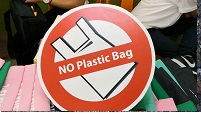
Singapore: Nanomedicines, considered as providing an efficient way to transcend the limits of standard cancer treatments, could also have unintended and harmful side effects like accelerating cancer spread, say researchers.
The findings caution against possible side effects of cancer nanomedicines, which are designed to kill cancer cells, and other common nanoparticles but paves the way for safer design and better treatment strategies.
Using breast cancer as a model, researchers from the National University of Singapore (NUS) discovered that common nanoparticles made from gold, titanium dioxide, silver and silicon dioxide — and also used in nanomedicines — widen the gap between blood vessel cells, making it easier for other cells, such as cancer cells, to go in and out of “leaky” blood vessels.

Innovative material brands are collaborating for a single, seamless sheet of Sorona® and Thindown® fabric – offering superior warmth and breathable insulation
DuPont Industrial Biosciences (DuPont) and Natural Insulation Products Inc. (NIPI™) today announced a collaboration to create a new category of insulation. This partnership brings together two forward-thinking leaders in the materials space to explore new, innovative materials that will combine DuPont™ Sorona® fibers and Thindown® to enhance the warmth, comfort and design flexibility of insulation.
Thindown® is the world’s first and only down fabric, which offers the coveted benefits of a versatile material. As the company looks to elevate its performance attributes and sustainable ingredients, it has partnered with DuPont Industrial Biosciences’ using its Sorona® fiber – a high-performance fiber made from renewable plant-based ingredients.

High-fashion fabric purveyor Toyama keeps abreast of trends and seeks to boost European profile while maintaining reputation for reliability in Asia
In the highly fragmented global textiles market, Toyama has built an excellent track record as a supplier of high-fashion fabrics, with almost a century and a half of expertise.
Founded in 1877 as a family-owned cotton yarn business, Toyama has become a trusted partner to leading apparel makers in Japan and overseas, and is valued for helping clients come up with concepts for their new product lines.
Its wool materials business also forms a significant part of its operations, with Toyama being among the top Japanese exporters to the United States.

Within six months of launching its offset printing operations, Surat’s newly established Kagaz Press has embraced digital printing as it opted for Konica Minolta C6100 at the TechNova booth on the second day of PrintPack India 2019.
Established in September 2018, Kagaz Press initiated operations with a pre-owned Heidelberg press and Technova Thermostar T9 platesetter, Apogee imposition software and an in-house bindery set-up for soft-cover and hard-case binding.
Speaking to PrintWeek India, Narendra Ballar of Kagaz Press, said, “A significant amount of printing work that we do is short-run. Moreover, the customers demand digital proof before they five a green signal for the production. This has prompted us to add digital printing capabilities to our operations.”
Kagaz Press’s Konica Minolta C6100 will be equipped with EFI Fiery Color Profiler Suite to manage the colour output of the press.

Oil prices rose during the week ending Feb. 1, with the price of West Texas Intermediate (WTI) for March delivery up by 2.9 percent and Brent crude for March delivery up by 1.9 percent.
In the previous week ending Jan. 25, oil prices fell slightly. WTI decreased by 0.2 percent, and Brent crude decreased by 1.7 percent. At the end of the week, WTI settled at 53.69 U.S. dollars a barrel, while Brent crude closed at 61.64 dollars a barrel.
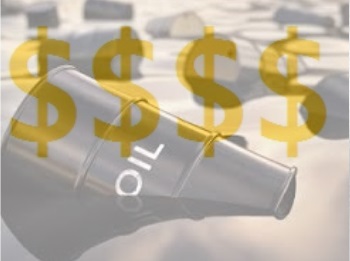
Short-covering after a sharp fall have contained losses in crude oil prices. The ongoing tension in Venezuela also supported crude oil prices.
Initially, crude oil prices were under pressure on concerns about the outlook for the global economy. The prospect of higher crude oil production in the US due to the shale revolution kept crude oil prices under pressure.
Recently, the IEA projected that US crude oil production would keep setting annual records until 2027 and will come at more than 14 million barrels per day through 2040.
However, short-covering after a sharp fall contained losses in crude oil prices. The ongoing tension in Venezuela also supported crude oil prices.

Drivers in the oil-rich country fear the pumps may soon run dry as US tightens economic screw
Drivers queue to pump fuel at a gas station of Venezuelan state-owned oil company PDVSA in Caracas on Wednesday.
Drivers queue to pump fuel at a gas station of Venezuelan state-owned oil company PDVSA in Caracas on Wednesday. Photograph: Luis Robayo/AFP/Getty Images
Outside a service station in eastern Caracas, the queue for fuel stretches for blocks. Drivers know that the US has leveled sanctions on Venezuela’s state-run oil company – and they worry that the pumps will soon run dry.
“Everything is going to get worse,” said Tomás Pacheco, who was waiting to fill his car. “And these long lines are the new normal for us.”

Sanctions against Venezuela could help oil prices rise higher
Abu Dhabi: Sanctions on Venezuelan exports as well as non-extension of Iran sanction waivers could help oil prices rise higher, analysts said.
Oil prices rose by 3 per cent on Friday largely due to sanctions on Venezuelan oil exports by the US administration following political turmoil in the South American nation.
“Geo-political factors will continue to play a significant role in oil prices. If the sanctions against Venezuela coincides with the non-extension of waivers against Iran at the same time it will have a profound upward effect on oil prices,” said Jaafar Al Taie, managing director of UAE based Manaar Energy Group speaking to Gulf News.
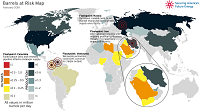
McKinsey & Company release study examining the potential of plastics recycling technologies; estimates $60 billion in profit growth for petrochemicals and plastics sector
In an article published in December 2018 by global management consulting firm McKinsey & Company, the authors develop and examine a “comprehensive model of global plastics-waste generation, the different approaches to plastics reuse and associated recycling technologies, and their economics.”
They find that currently only 12% of plastics are being reused or recycled, while the rest instead ends up in incinerators, landfills, or dumps. The article goes on to “outline a scenario for the plastics industry through which 50 percent of plastics worldwide could be reused or recycled by 2030.”
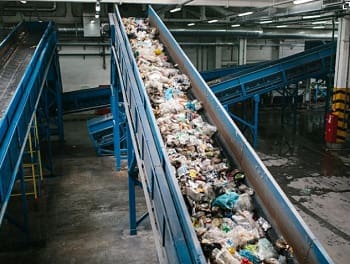
Nano Graphene Inc., dba GrapheneCA (“GrapheneCA”), announced today that its second graphene production line is now fully operational.
A major milestone in GrapheneCA’s development, this event marks a tenfold leap in GrapheneCA’s production power.
Eager to meet the demands of an ever-expanding market for its line of commercial grade graphene and graphene-based products, GrapheneCA’s researchers have been hard at work ensuring its Brooklyn production facility scaled with a 2nd generation production system.

Composite materials such as Carbon Fiber Reinforced Plastic (CFRP) offer significant advantages where high strength and low weight are required.
These materials are, unfortunately, also very difficult to recycle.
Composites consist of fiber reinforcement embedded within a polymer matrix. The polymer may be a thermoset, such as epoxy, or a thermoplastic, such as polyester.
Separating the fibers from the matrix is a huge challenge for recycling, especially where thermoset materials are used.
Production costs for composite components are also very high. Now ProDrive, a UK motorsport specialist, has developed a process that looks set to reduce production costs while enabling low-cost recycling, therefore also reducing material costs.

